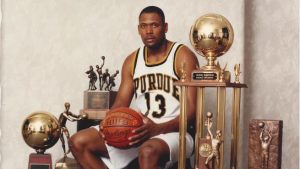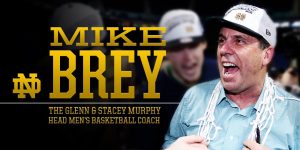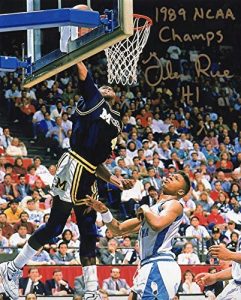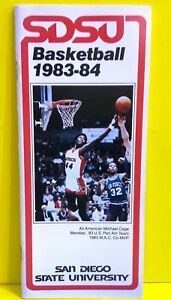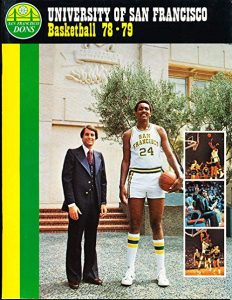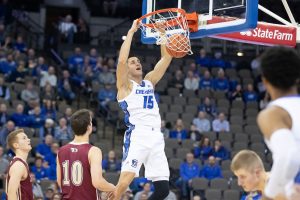With the 2019 NBA draft taking place this week, we will spend the days ahead taking a walk down memory lane with a choice collection of players who are celebrating an awesome anniversary this year. From a future Hall of Famer selected 2nd overall in 1959 (60th anniversary) through a conference POY picked in the 2nd round in 2009 (10th anniversary), these stars have all seen their dreams come true in past drafts. We continue our series with Indiana Hall of Fame sportswriter Jeff Washburn about Purdue legend Glenn Robinson, who led the nation in scoring in 1994 en route to being named national POY. After being drafted 1st overall by Milwaukee a few months later he signed the richest rookie contract ever and won a title with San Antonio in 2005. Jeff passed away in 2017 but HoopsHD’s Jon Teitel got to speak with him about Glenn’s career a few years ago and is proud to present this never-before-published interview in recognition of the 25th anniversary of Glenn getting drafted.
In the 1991 Indiana state playoffs as a senior at Gary Roosevelt High School Robinson made the game-winning shot in double-OT of the regionals, made the game-winning shot in the semifinals, and scored 22 PTS to help beat Alan Henderson’s Brebeuf Jesuit team to win the state title: what did it mean to him to win the title? I covered most of those games and the match-up with Henderson was a big deal at the time: I remember him beating Henderson’s team pretty handily in the RCA Dome. Glenn’s team was really good and plowed roughshod through most of the opposition.
In the 1991 McDonald’s All-American Game he scored 20 PTS for the West while teammate Chris Webber had 28 PTS/12 REB and made a tomahawk dunk in the final seconds for a 2-PT win over the East: could you tell even back then that the “Fab 5” was going to do something special at Michigan? Webber was the big piece to that puzzle but Jalen Rose had also carved out a reputation. I thought that they were going to be good at Michigan, but what made them succeed was that their guards were much better than anticipated.
During his recruiting trip to Indiana, Coach Bob Knight allegedly saw his feet propped up in his office while watching some game film and yelled, “Hey, get your feet off the desk!”: is that story true, and how close did he come to becoming a Hoosier? I do not know if that story is true but I do not think he came close at all to becoming a Hoosier. Purdue’s lead recruiter was a guy named Frank Kendrick. Glenn had started attending Gene Keady’s basketball camp while in the 8th grade and Frank and Glenn had hit it off right from the start. Glenn has gotten better over time but back then he was a very guarded person who did not trust a lot of people.
He played for Coach Gene Keady at Purdue but had to redshirt as a freshman: how frustrating was it for him to spend a year on the bench, and what made Keady such a great coach? They had Prop 48 back then and Glenn was only a partial qualifier coming out of high school. I wrote Coach Keady’s biography and I remember him saying how Glenn took that year to grow up both as a player and a student. Glenn was a star from day 1 of his sophomore year: he had a huge game in the season opener (a 4-PT win over UConn). Gene coached 25 years at Purdue and was known for taking under-the-radar guys and making them into great players (like Brad Miller/Brian Cardinal). Keady rarely got elite superstars and Glenn was 1 of the very few he ever had. Glenn was very close to his mother and wanted to play close to home so she could come watch him in person. Keady was all about playing hard and being tough-nosed on defense and not shackling his best players. Bobby Knight got almost everyone he wanted within the state of Indiana but Gene beat Knight in head-to-head games.
What are your memories of the 1993 NCAA tourney (he scored 36 PTS before fouling out in a 6-PT loss to Rhode Island)? Back then they played some 1st round games on campus sites: that game was at Wake Forest. Glenn had a great game but the rest of his team did not play well. Purdue started off that year 12-1 before struggling in conference play. The only senior on the roster was Matt Painter, who is now the Purdue head coach.
As a junior he led the nation in scoring with 30.3 PPG and also had 11.2 RPG, becoming the first player since 1978 to lead the Big 10 in both categories: how did he balance his scoring with his rebounding? He just had a ferocious knack for the basketball. He had a few games where he would get a lot of put-backs after his teammates missed a lot of shots. He would play on the perimeter on offense but he was stationed close to the basket on defense. They had a very smart/savvy team with guys who were sons of coaches and others who later became coaches themselves.
Take me through the 1994 NCAA tourney as a #1 seed:
He scored a tourney-school record 44 PTS in a 5-PT win over Kansas: was it just 1 of those scenarios where every shot he put up seemed to go in because he was “in the zone”? No question about it. That game was at Tennessee and he had a magical game against a good Jayhawk team. I remember vividly that every time Kansas would make a run Glenn would answer with a basket or free throw of his own. That was his breakout game for people who did not watch the Big 10 a lot.
He scored a season-low 13 PTS/6-22 FG in a 9-PT loss to Duke: how painful was the back strain he suffered in the previous game, and do you think that they would have beaten Duke if he was healthy? Purdue got out to a good lead thanks to a good game from Cuonzo Martin, but Duke is Duke and just fought back to win it. It is a hypothetical…but if Glenn could have scored 25 PTS then they probably would have won that game. Purdue fans were very disappointed because they had waited so long to get a player of Glenn’s ability. If they had lost to a lesser ACC team like Florida State then the bitterness would have even been greater but there was less of a sting in losing to Duke.
He was a 2-time All-American and the 1994 national POY: what did it mean to him to win such outstanding honors? As time went on it meant more to him. Glenn was never an outspoken guy like Charles Barkley: he was the master of “coachspeak” by giving credit to his entire team…but that was not always correct. We reflect on things more and put things in better perspective as we get older: he talked about that with me after coming back to watch his son Glenn III play for Michigan on the road in Mackey Arena. I think that it meant a lot to him to be POY because there were a lot of great players in that era.
In the summer of 1994 he was drafted 1st overall by Milwaukee, and after a long contract holdout he signed a 10-year, $68 million deal (from a franchise that at the time was only worth $77 million!) that still stands as the richest rookie contract in NBA history (since a salary cap for rookies was implemented the following season): how long was he willing to hold out for, and what effect did the holdout have on his public perception? A lot of Purdue people hoped Glenn would sign with an agent named Eugene Parker (who was a former Purdue basketball player), but Glenn signed with a guy named Charles Tucker because he had a relationship with some people in Gary who Glenn trusted. Tucker said that the salary landscape was going to change the following year so he did a great job of looking out for Glenn and making sure that he was set for life. I think that Glenn had a reputation of coming from a rough background. I remember all of the 1994 draftees being at the same hotel. Grant Hill was playing some classical music on the piano and sounding very articulate…while Glenn showed up about 30 minutes late and was wearing a white t-shirt. There was a noticeable difference between the 2 rookies, at least in terms of perception.
He was selected for the 1996 Olympic team but was unable to play due to injury: how much did he regret being unable to win a gold medal? I think that he really wanted to play…but not at the risk of being a less-than-great NBA player. Glenn would call Coach Keady for advice even after joining the NBA and Keady was involved with USA Basketball.
He averaged 20+ PPG in 7 of his 8 seasons in Milwaukee, and his 20.7 career PPG remains in the top-50 all-time: do you consider him to be 1 of the best scorers in NBA history? I certainly do: he could always shoot the ball and find ways to score. He played on a lot of unsuccessful teams until joining the Spurs late in his career, and that lack of team success is often a big part of a player’s legacy.
In Game 7 of the 2005 Finals with San Antonio Tim Duncan had 25 PTS/11 REB in a 7-PT win over Detroit to win the title: what did it mean to him to win a title? It was something that he always dreamed of. He was not the go-to guy at that point in his career but it meant a lot to finally win it all after playing on some bad teams and having a lot of injuries.
His son Glenn III was 1 of the best players in the nation at Lake Central High School and is now in the NBA: does he credit at least some of his success to genetics? Certainly: he is much more comfortable around the media and while he is very proud of his father he wanted to go somewhere he could carve his own niche. He can shoot the ball so there will always be a place for him on an NBA roster. Brian Cardinal once told me that the key is the team you land with: if Glenn III can settle in with a franchise who needs a wing that can shoot it then I think he will have a long career and provide some instant offense.
When people look back on his career, how do you think that he should be remembered the most? When you arrive at a college with an almost larger-than-life persona in a state that is crazy about college basketball, it is hard to live up to that expectation. However, he almost led his team to a Final 4 and was the national POY so his legacy is that of 1 of the top 2-3 most beloved players in Purdue history. If he had been a little more personable then he might have been considered 1 of the greatest ever (a la Rick Mount). Even so, he had a great career during a special time at Purdue.

